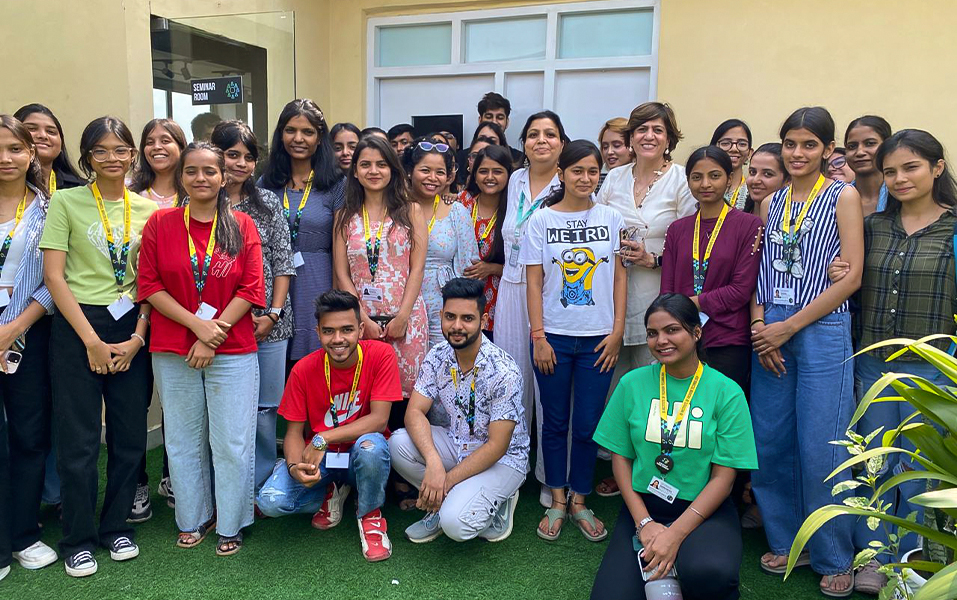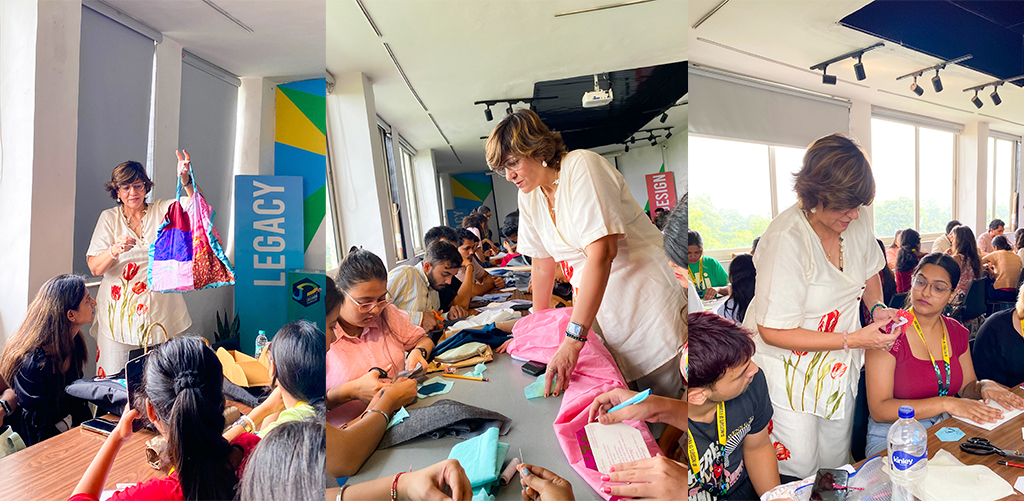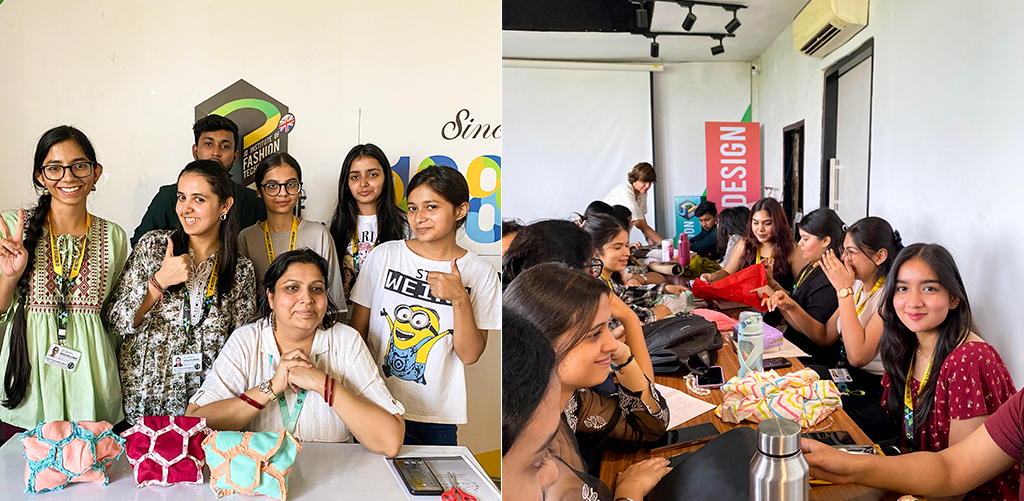

The fashion business has historically served as a foundation for self-expression and creativity; yet, its environmental consequences have increasingly raised concerns. As consumers and companies increasingly recognise the implications of rapid fashion, the imperative for sustainable practices has grown more pressing than ever. Recently, JD Institute of Fashion Technology conducted a session entitled “Sustainability in the Fashion Industry,” facilitated by esteemed designer Sonia Jetleey, known for her timeless designs for the modern woman. The event provided students with both theoretical information and practical experience to comprehend the significance of sustainability in fashion.
Sonia Jetleey started the workshop by talking about the major issues that the fashion business is having with turning ecological. The designer discussed how big brands have long relied on methods that aren’t sustainable to make cheap, trendy clothes. The fashion business leaves a big mark on the environment, from using too much water to make clothes to using harmful chemical dyes and making a lot of textile waste. These methods are not sustainable and lead to pollution, resource loss, and unethical working conditions. It is clear that we need to change how we do things.

A primary subject addressed at the session was the influence of prominent fashion labels in fostering unsustainable purchasing behaviours. Jetleey elucidated how the fast fashion framework, characterised by the mass production of inexpensive apparel, has fostered a culture of throwaway fashion. Consumers are urged to purchase above their need, perpetuating an unsustainable cycle of overconsumption and waste.
She highlighted that certain brands are initiating green initiatives; nevertheless, these efforts frequently fail to achieve substantial impact. Sustainability, she asserted, must transcend marketing methods and be thoroughly embedded in the fundamental production and supply chain of a business. Jetleey encouraged students to critically evaluate the industry’s adaptations and to leverage their future positions to promote change.
The workshop’s engagement element was quite captivating for the students. Under Jetleey’s supervision, they undertook the task of constructing a handbag composed completely of hexagonal fragments of discarded fabric. This practical endeavour was both enjoyable, inventive, and a significant lesson on sustainability. Through the transformation of discarded materials into practical and visually compelling objects, the students acquired knowledge on how small modifications in production and design can diminish waste and lessen environmental impact.
The activity highlighted the significance of Upcycling—the conversion of waste materials into new products. For some students, this represented their inaugural encounter with upcycling, illuminating the myriad possibilities of crafting sustainable creations without sacrificing quality or aesthetics.

Jetleey emphasised the importance of reevaluating the students’ consumption patterns. Fashion transcends the runway; it influences daily existence. Students, as prospective fashion professionals, possess the capacity to shape industry norms and consumer behaviour. By selecting sustainable textiles, endorsing ethical businesses, and exercising caution in their consumption, people may have a significant impact on the planet.
Jetleey urged the students to perceive themselves not merely as designers or marketers but as proponents of a more sustainable and ethical fashion business. Consumer and professional choices can either intensify the issue or facilitate resolution.
Beyond teaching about sustainability, the class encouraged individuals to take action. The JD Institute of Fashion Technology is training the next generation of fashion leaders who will put environmental responsibility at the top of their career lists by providing students with the information and hands-on skills they need to adopt sustainable practices.

Sonia Jetleey’s workshop influenced the students to view fashion in a new light, emphasising creativity, sustainability, and moral duty. Because the fashion industry is at a crossroads, it’s important to create workshops like this to help train a new generation of talent who will drive change and make sustainability a central part of their work.